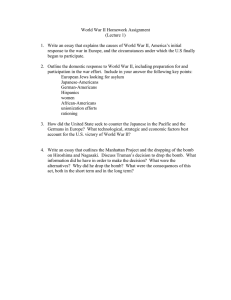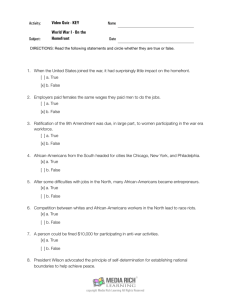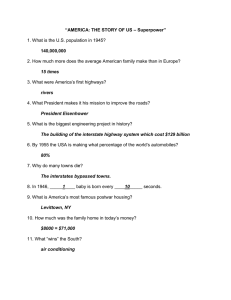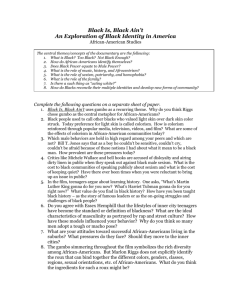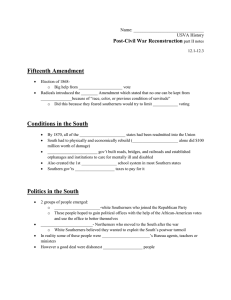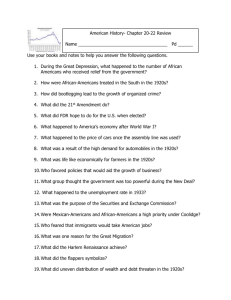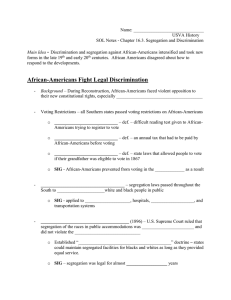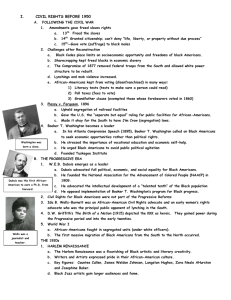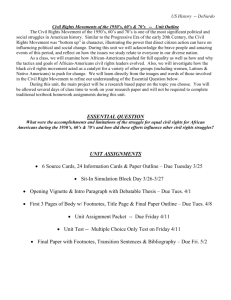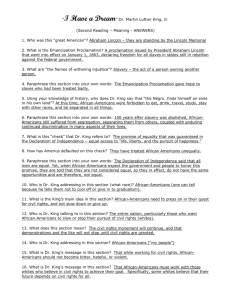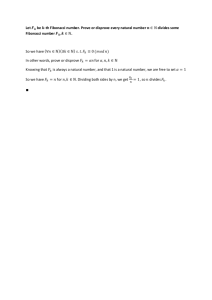World War II The Home Front
advertisement
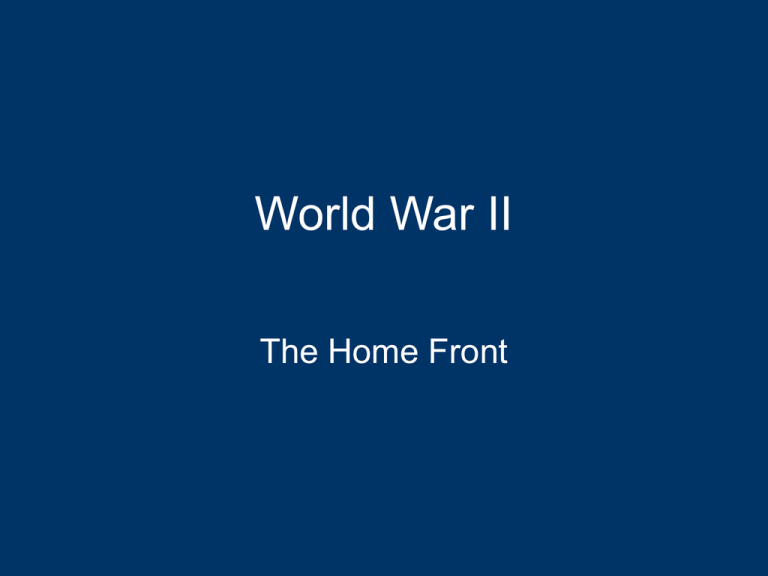
World War II The Home Front The “Arsenal of Democracy” • “We must be the great arsenal of democracy.” FDR, 1940 • US industrial production was a key to winning the war. Women & The War • The War created new opportunities for women to serve their country and to disprove sexist stereotypes. Rosie the Riveter African-Americans and World War II • The War created new opportunities for African-Americans to serve their country and to disprove racist stereotypes. • The war was used as an opportunity for Civil Rights leaders to push for change. • The war highlighted the ugliness of hate and racism. World War II & African-Americans • • • • Double V CORE A. Philip Randolph Executive Order 8802 Rationing • Rationing is the controlled distribution of resources and scarce goods or services. It restricts how much people are allowed to buy or consume. • Good that were rationed during World War II include: gasoline, meat, butter, rubber, steel, coffee, and sugar. Fashion • In the spring of 1942, the War Production Board became the nation's premier clothing consultant by dictating styles for civilian apparel that would conserve cloth and metal for the war effort. For example, menswear rid itself of vests, elbow patches on jackets, and cuffs on pants. Women's clothing also relied on fewer materials and skirts became shorter and narrower. Twopiece bathing suits became patriotic. Yes No Sports—The Pete Gray Example Ted Williams Lifetime Stats The Manhattan Project • The Manhattan Project refers to the project to develop the first nuclear weapons during World War II by the United States, the United Kingdom and Canada under the administration of General Leslie R. Groves, with its scientific research directed by the American physicist J. Robert Oppenheimer. • The project succeeded in developing and detonating three nuclear weapons in 1945: a test detonation on July 16 in New Mexico; an enriched uranium bomb codenamed "Little Boy" detonated on August 6 over Hiroshima, Japan; and a plutonium bomb code-named "Fat Man" on August 9 over Nagasaki, Japan. Japanese Internment • 110,000 Japanese were placed in "War Relocation Centers" • 62% were US citizens
